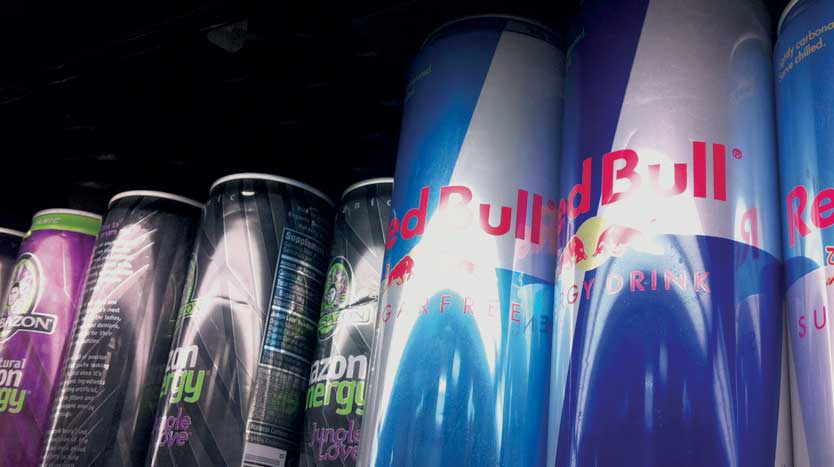

Muscat, April 7 - While the broad category of products subject to Excise Tax (also known as Selective Tax) is generally well-known, further specificity and clarity will be forthcoming when the Omani government issues the Executive Regulations pursuant to the new law during the second half of this year, according to leading professional services firm PwC.
The firm’s tax experts have noted that in addition to clear and timely guidance, a definitive listing of products is key to the smooth implementation of the new tax levy, given the diversity of goods that fall in some categories of products subject to Excise Tax. Carbonated and energy drinks, for example, are marketed in a myriad of flavours, combinations and labels each requiring clarity with regard to classification as an excisable product, they point out.
“According to the Oman Excise Tax Law, the products that will be subject to Excise Tax ‘shall be determined by a Decision of the Minister Responsible for Financial Affairs, after the approval of the Council of Ministers’,” said Jeanine Daou, PwC Partner — Middle East Indirect Tax Leader.
“At this stage, soft drinks, energy drinks and alcoholic beverages are expected to be subject to Excise Tax based on the tweets published via the Oman eGovt Twitter feed. It is important to note that the Excise Tax Law does not include these details. Additional guidance on what will be considered soft drinks, energy drinks and alcoholic beverages is expected to be issued, as in other GCC countries where Excise Tax has been implemented (not all implemented the tax on alcoholic beverages),” she explained.
Excisable goods
The Selective Tax Law, promulgated by Royal Decree 23/2019 last month, levies a tax on tobacco and its derivatives (100 per cent), carbonated beverages (50 per cent), alcohol (100 per cent), energy drinks (100 per cent) and pork products (100 per cent). While these categories are relatively well-defined, a comprehensive listing of beverages and energy drinks subject to the new tax will go a long way in removing any scope for doubt or confusion.
“As explained earlier, a Decision of the Minister is expected to clarify the type of beverages that will be subject to Excise Tax and in particular for this question, what shall be considered as ‘Energy Drinks’ for the purposes of the Excise Tax system in Oman,” the tax executive noted.
Jeanine pointed out that in the UAE, energy drinks are defined as any beverage marketed or sold as an energy drink that may contain stimulant substances that provide mental and physical stimulation, which includes without limitation caffeine, taurine, ginseng and guarana. This also includes any substance that has an identical or similar effect as those substances. Also falling in this category are concentrates, powder, gel or extracts intended to be made into an energy drink.
But what about ‘sports drinks’ and thirst quenchers such as Gatorade, and so on? “We would need to wait to see the definition of excisable goods to determine whether sports drinks such as the brand you mention fall under the remit of the Excise Tax,” she said.
Supply chain
With the new tax expected to come into force in the second half of this year, businesses that trade in excisable goods would do well to be suitably geared for this new levy, stressed Carlos Garcia Pinilla, PwC Director —Middle East Customs & International Trade.
“In addition to the recalibration of prices and understanding the basis on which the Tax will be charged, businesses will need to understand the registration and compliance requirements of the new Tax, as well as the transitional compliance arrangements, which will affect businesses holding stocks of excise goods in the market by the date the Excise Tax is introduced. Businesses will also need to review IT Systems to ensure relevant goods are identified and the calculation and reporting of Excise Tax is undertaken accurately, as well as ensuring changes to billing and point of sale systems.”
Pinilla further added: “It is important to ensure that the supply chain of importers and local producers of goods subject to Excise Tax is efficient. This not only applies to the finished products, but also to the raw materials and ingredients used in the production process. Mechanisms such as customs suspension cases and tax warehousing arrangements are expected to be available to improve the cash flow of businesses trading in goods subject to Excise Tax.”
Retail impact
So how does the new levy impact the retail price of, say, a can of carbonated beverage or energy drink? Imran Mushtaq, PwC Director — VAT & Indirect Tax, explained: “The Oman Excise Tax Law does not specify the products that will be subject to the tax, nor does it detail the tax rates or value on which the tax will be calculated. However the GCC Common Excise Tax Agreement states that excise tax may be calculated on the retail sale price of the goods, or in accordance with a standard price list agreed upon by the GCC Tax Administrations, whichever is higher.
On the assumption that soft drinks will be subject to excise tax at a rate of 50 per cent, a 150bz soft drink would be 225bz after tax has been applied. Similarly, on the assumption that energy drinks will be subject to tax at a rate of 100 per cent, an energy drink costing 500bz today, will be RO 1 after the addition of excise tax.”
Oman Observer is now on the WhatsApp channel. Click here



